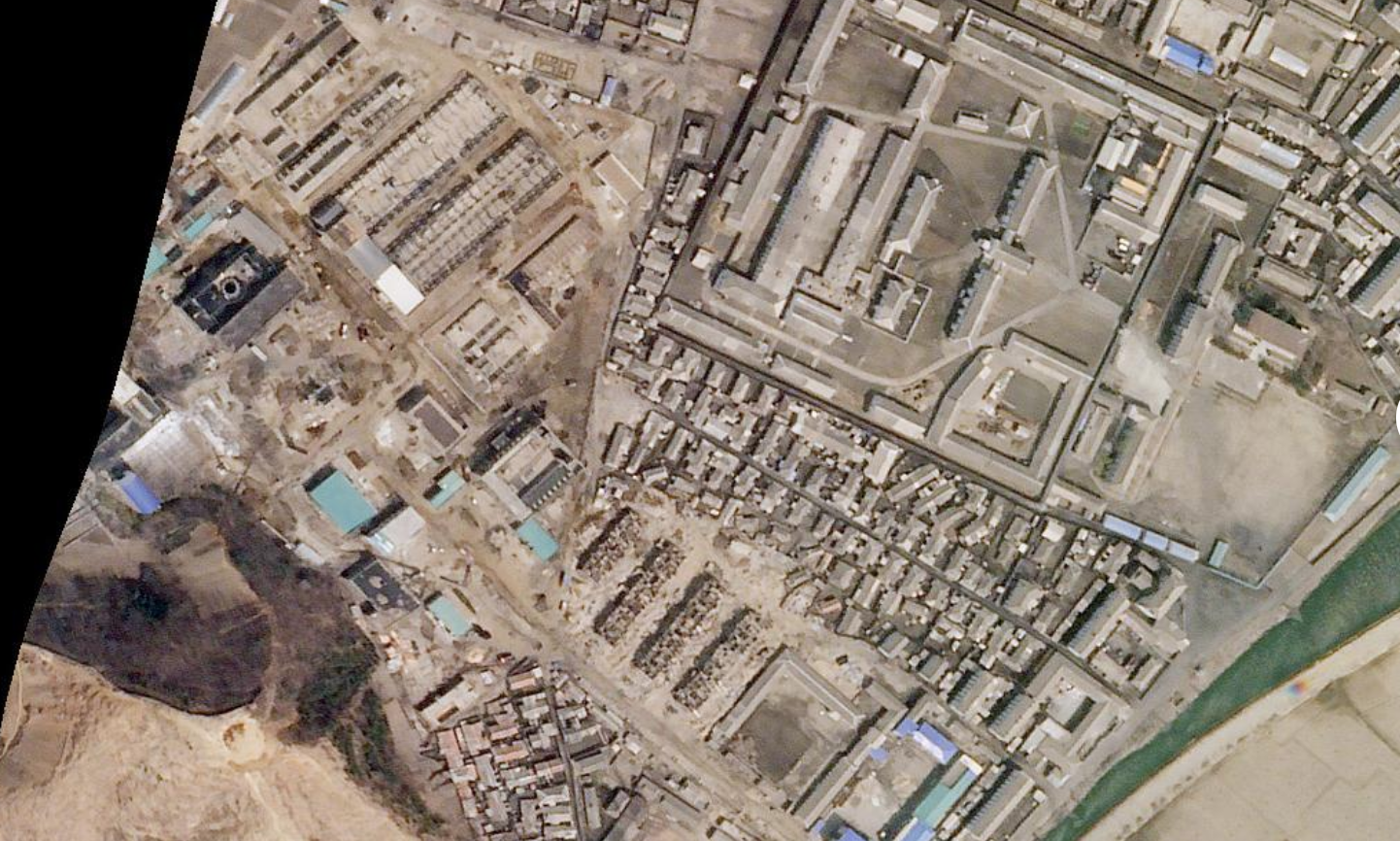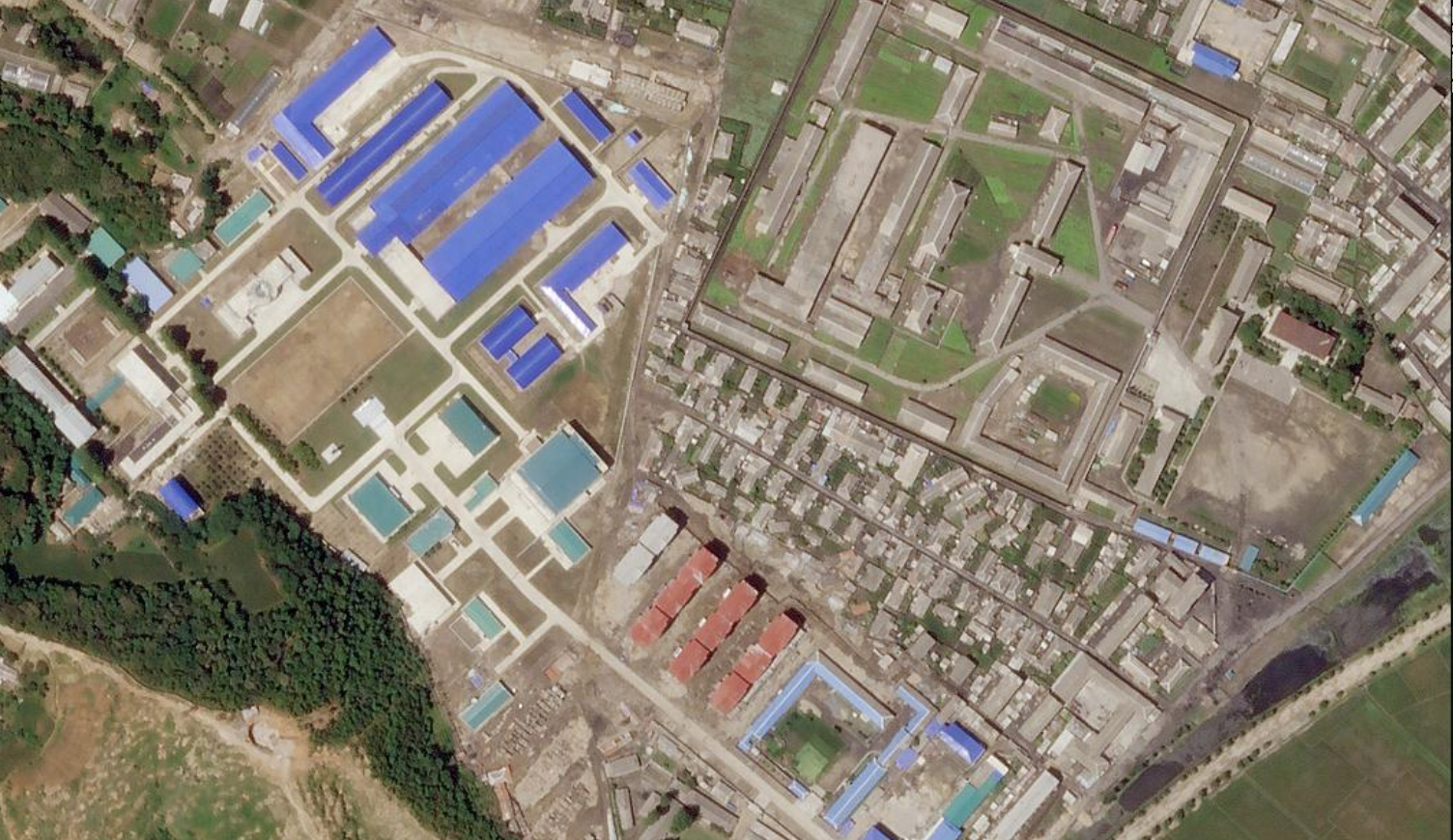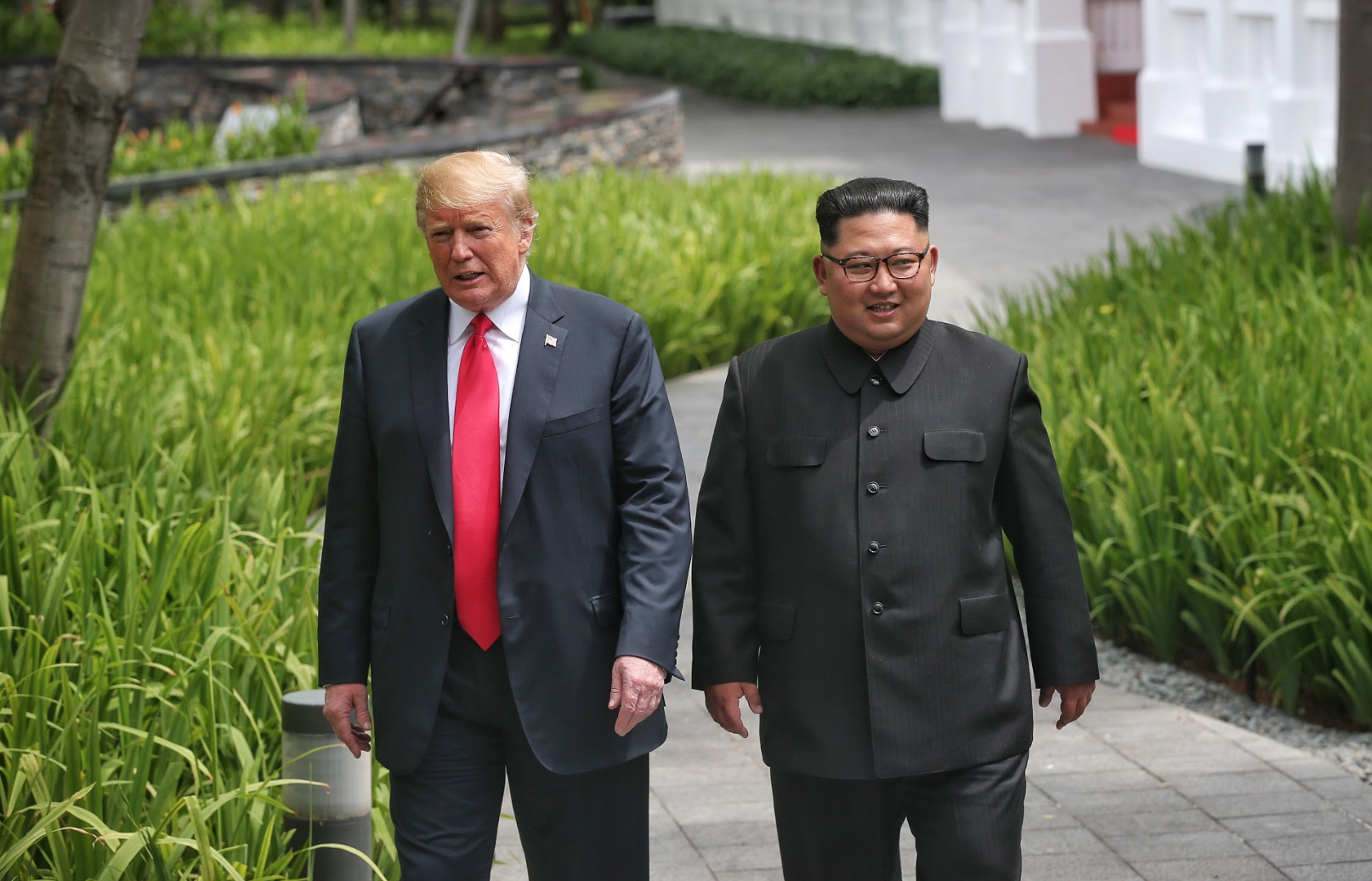Nearly three weeks have passed since the highly-anticipated summit that took place on June 12 in Singapore between North Korean leader Kim Jong-un and U.S. President Donald Trump.
What has happened since then?
For one, there has been no evidence of North Korea starting on the process of denuclearisation, despite Trump saying last week that the regime was blowing up four of its big test sites and that a process of "total denuclearisation... has already started".
Here are some other developments, or the lack of, since then.
Nuclear sites being expanded
Latest satellite images show Pyongyang finishing construction at the Chemical Material Institute, which researchers say is based in the North Korean city of Hamhung.
 Satellite image taken on April 1. (Source: Planet Labs Co.)
Satellite image taken on April 1. (Source: Planet Labs Co.)
 Satellite image taken on June 29. (Source: Planet Labs Co.)
Satellite image taken on June 29. (Source: Planet Labs Co.)
The facility is said to produce parts for North Korea's missile programme.
In addition, The Washington Post reported that U.S. intelligence officials had concluded from evidence obtained in the wake of the June 12 summit that North Korea does not intend to fully give up its nuclear stockpile.
The evidence also reportedly shows that North Korea is planning to deceive the U.S. about the number of nuclear warheads it has, as well as the existence of undisclosed facilities that manufacture fissile material for nuclear bombs.
Trump: "Possible" things might not work out
Trump has also played down hopes for any substantial progress towards North Korea's denuclearisation.
He said in an interview with Fox Business on Sunday, July 1, that it was "possible" the nuclear deal with North Korea might not "work out":
"I made a deal with him, I shook hands with him, I really believe he means it.
Now, is it possible? Have I been in deals, have you been in things where, people didn't work out?
It's possible."
His words stood in stark contrast to the ones he made in a tweet after his return from the summit, in which he said "there is no longer a nuclear threat from North Korea".
Just landed - a long trip, but everybody can now feel much safer than the day I took office. There is no longer a Nuclear Threat from North Korea. Meeting with Kim Jong Un was an interesting and very positive experience. North Korea has great potential for the future!
— Donald J. Trump (@realDonaldTrump) June 13, 2018
During the interview, he also denied giving any concession to North Korea even though he announced an end to joint military exercises with South Korea, or "war games" as he called it, as a sort of incentive to get North Korea started on the denuclearisation process.
[related_story]
Other things that are not helping
Making matters worse is the lack of an official envoy to North Korea.
Currently, Secretary of State Mike Pompeo works as the point man on the Trump administration to get North Korea to give up its nuclear programme.
But some lawmakers are calling for an envoy to be in charge, saying that Pompeo is unable to give the issue the undivided attention it needs.
He was also criticised as being under-qualified for the job as he is new to diplomacy and has limited knowledge of nuclear technicalities, despite his experience as CIA chief.
On the other hand, the North Korean officials tasked with negotiating with U.S. officials are likely to be highly experienced and therefore, more difficult to deal with.
Not so fast...
Nevertheless, it has been reported that Pompeo has canceled a July 6 meeting with his Indian counterpart to visit North Korea this week, although it has not been confirmed yet by the State Department.
U.S. ambassador to the Philippines, Sung Kim, also met with North Korean officials at the Demilitarised Zone (DMZ) over the weekend for the first time since the summit.
In a sign of warming relations with the U.S., North Korea has also recently cancelled its annual anti-U.S. rally for the first time in years.
However, the act is not accompanied by any moves taken towards denuclearisation, something that means different things to Pyongyang and Washington, and which critics say is almost impossible to achieve, especially with the lack of an alternative security guarantee for the North Korean regime should it denuclearise.
Top image via Kevin Lim/ST
If you like what you read, follow us on Facebook, Instagram, Twitter and Telegram to get the latest updates.
